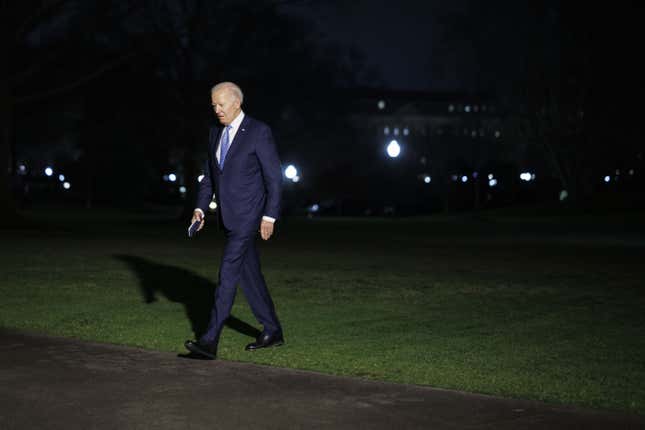
Updated as of 1/31/2024 at 9:30 a.m. ET
Alright, stop the rumors! President Joe Biden does indeed have plans to connect with the families of three Black Army soldiers who were slain in a drone strike Sunday - as opposed to the previous rumor that they didn’t make it on his calendar.
The families are preparing for an honorable transfer of the bodies of 46-year-old Sgt. William Rivers, 24-year-old Spc. Kennedy Sanders and 23-year-old Spc. Brianna Moffatt from the Syrian border to the Dover Air Force Base in Delaware.
The President and Defense Secretary Lloyd J. Austin III are expected to met the families at the Air Force base to receive the remains alongside the families, per an AP report. The outlet reported that Biden initially contacted the families to ask if they wanted him to be there and they agreed to his appearance. Pentagon Press Secretary Air Force Maj. Gen. Pat Ryder said in a press briefing Tuesday that the Defense Secretary would be making personal calls to each of the families to relay his condolences.
The Defense Department said the three soldiers were killed after an un-crewed aerial system attacked the military base located in Jordan. The trio were part of Operation Inherent Resolve, created to defeat ISIS.
As the news broke this week, it was unclear whether Biden was going to show up to memorialize the fallen soldiers. When National Security Council spokesman John Kirby told reporters Monday that he didn’t “have anything on the president’s schedule to speak to,” according to The New York Post.
Well... that’s probably because the President was waiting for the green light to meet the families to receive the bodies of the fallen soldiers.
Biden’s Pending Response to The Attack
Biden initially responded to the attack, calling it “despicable and wholly unjust” and vowing to keep the “sacred obligation” he bears to the families. He also promised to “hold all those responsible to account at a time and in a manner his choosing.” While Biden has yet to announce what the next move forward will be, the White House has been pummeled with questions about it as lawmakers debate on whether the country should retaliate against the perceived terror attack.
“When it comes to the situation in Iraq and Syria and Jordan, our troops were attacked, and three U.S. service members were killed and over 40 wounded. The president and the secretary have both said that we will respond at a time and place of our choosing. ... I’m not going to go into details of what that could look like, other than the fact that there will be consequences,” said Ryder.
However, the National Security Council spokesman told CNN that, as of now, inciting a war is not on the agenda.
“We’re not looking for a wider conflict in the Middle East. In fact, every action the president has taken has been designed to de-escalate, to try to bring the tensions down,” said Kirby.
Gen. C.Q. Brown Jr. echoed the same notions in an exclusive interview with ABC News. Brown said the U.S. has to be thoughtful about its approach because the Iranian-backed militia groups are unpredictable. He also suggested retaliation could send the U.S. into a “full-scale war” which he believes Iran isn’t necessarily trying to incite. Instead, he believes Iran just wants the U.S. to leave Iraq.
On the other side of the conflict, the Iranian government spoke up following the drone strike and denied their involvement.
“Regional resistance factions do not receive orders from Iran, and Iran does not interfere in the decisions of the resistance to support Palestine or defend itself,” said Iranian Foreign Ministry spokesperson Nasser Kanaani via CBS.

